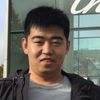...
| Tip |
|---|
If you have more pictures, send them to thomas.watteyne@inria.fr to be published here! |
| Gallery | ||
|---|---|---|
|
About the Speakers
Thomas Watteyne (www.thomaswatteyne.com, @thomaswatteyne) is an insatiable enthusiast of low-power wireless mesh technologies. He is a researcher at Inria in Paris, in the new EVA research team, where he designs, models and builds networking solutions based on a variety of Internet-of-Things (IoT) standards. He is Senior Networking Design Engineer at Linear Technology, in the Dust Networks product group, the undisputed leader in supplying low power wireless mesh networks for demanding industrial process automation applications. Since 2013, he co-chairs the IETF 6TiSCH working group, which standardizes how to use IEEE802.15.4e TSCH in IPv6-enabled mesh networks, and recently joined the IETF Internet-of-Things Directorate. Prior to that, Thomas was a postdoctoral research lead in Prof. Kristofer Pister’s team at the University of California, Berkeley. He founded and co-leads Berkeley’s OpenWSN project, an open-source initiative to promote the use of fully standards-based protocol stacks for the IoT. Between 2005 and 2008, he was a research engineer at France Telecom, Orange Labs. He holds a PhD in Computer Science (2008), an MSc in Networking (2005) and an MEng in Telecommunications (2005) from INSA Lyon, France. He is Senior member of IEEE. He is fluent in 4 languages. | |
| Xavier Vilajosana (www.xvilajosana.org) is a computer science engineer, co-founder of Worldsensing and OpenMote Technologies. He is currently Associate Professor at the Universitat Oberta de Catalunya. From January 2012 to January 2014, Xavier was visiting Professor at the University of California Berkeley holding a prestigious Fulbright fellowship. In 2008, he was visiting researcher of France Telecom R&D Labs, Paris. Xavier has been one of the main promoters of low power wireless technologies, co-leading the OpenWSN.org initiative at UC Berkeley, and promoting the use of low power wireless standards for the emerging Industrial Internet paradigm. He also contributed to the industrialization and introduction of Low Power Wide Area Networks to urban scenarios through Worldsensing. Xavier is author of different Internet Drafts, as part of his standardization activities for low power industrial networks. Xavier is contributing actively at the IETF 6TiSCH WG. He holds an MsC degree on Computer Science from the Universitat Politecnica de Catalunya (UPC) and a PhD on Computer Science from the Universitat Oberta de Catalunya. At the moment, Xavier is author of 16 patents, more than 25 high impact journal publications and more than 40 International conference contributions. Technically, Xavier has extensive experience in Distributed Systems, Wireless Networks, Delay Tolerant Networks and Software Defined Networks. | |
| Pere Tuset (www.peretuset.net) is co-founder and CEO of OpenMote Technologies and part-time lecturer at Universitat Oberta de Catalunya (UOC). He received the BSc and MSc in Telecommunications Engineering from UPC (Universitat Politècnica de Catalunya) in 2007 and 2011, respectively, and the PhD in Network and Information Technologies from UOC (Universitat Oberta de Catalunya) in 2015. Currently, Pere is co-author of 5 journal publications, 6 conference papers and 3 patents. In 2014, Pere received the Best Demo Runner-up Award at IEEE INFOCOM for the paper "Demonstrating Low-Power Distributed Queuing for Active RFID Communications at 433 MHz". | |
| Tengfei Chang (www.openwsn.org) is a pre-postdoctoral research lead in the OpenWSN team at Inria-EVA in beautiful Paris, France. He is a true embedded artist, from designing boards to writing intricate driver firmware and high-level computer software, he likes it all. In the OpenWSN project, he is the community leader, and co-lead of firmware development. His research interest include low-power wireless mesh networks, Time Synchronized Channel Hopping and adaptive time synchronization. He is finalizing a PhD at the University of Science and Technlogy in Beijing, under Prof. Qin Wang. |



